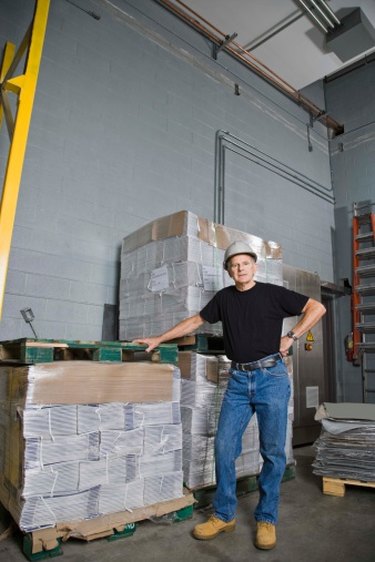
Practically everything in your home comes in some type of packaging: from televisions, soft drinks and frozen food. Manufacturers, customers and businesses use three kinds of packaging: primary, secondary and tertiary. Primary packaging is the container that holds the products, while secondary packaging consists of outer wrapping that assist in displaying, storing, shipping and protecting products. Additionally, tertiary packaging is the combining of products for storage and hauling. Packaging helps manufactures store, inform and transports goods and products to customers safely.
Secondary Packaging
Video of the Day
Secondary packaging assembles primary packaging, such as individual candy wrappers or the inside bags that holds saltine crackers, together for you to handle easier. This type of packaging can include shrink-wrap around groups of individual bottles of water, and the large box that encases canned soft drinks. Other secondary packaging may include dispenser boxes that hold multiple bags of candy, lip gloss or the boxes that hold individually wrapped powered drink mix.
Video of the Day
Tertiary Packaging
Most warehouse use tertiary packaging to help protect and transport goods throughout the country. The most common type of tertiary packaging is the corrugated brown carton. Another type of tertiary packaging includes shrink-wrapped small boxes on pallets.
Characteristics
Many types of packaging depict the latest trends or information about the products or goods. Some secondary and tertiary packing tell the manufacture or customer it is comes from recyclable material, reusable or other environmental concerns. Other packaging may display nutrient contents, portion sizes and labeling requirements, such as directions and contents.
Purpose
Each type of packaging for goods provides up to five uses, according to the Ohio State University Purposes of Packaging Fact Sheet. Primary packaging typically is the packaging that contains the products. Other types of packaging may not only contain materials, but identifies the brand or company, protect from theft, breaking and moisture, help safety shipping material and displaying for marketing tools.